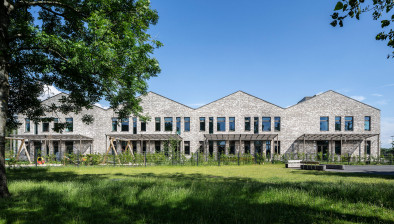Conversation not confrontation needed in Scottish Planning Bill
 RTPI Scotland has joined forces with a number of high profile organisations in a letter sent to the Scottish Government and MSPs arguing for a change of direction in the Scottish Planning Bill.
RTPI Scotland has joined forces with a number of high profile organisations in a letter sent to the Scottish Government and MSPs arguing for a change of direction in the Scottish Planning Bill.
In an edited letter published in The Herald on June 29, the signatories called for the new legislation to move away from a system that entrenches confrontation to one that fosters positive conversation between all with a stake in an area.
The full text of the letter and the list of signatories are below:
RTPI joint letter
Dear Sir/Madam
We are organisations who have an important role to play in the planning system. We see the planning bill as an opportunity to put communities at the heart of planning through ensuring that they are engaged early and meaningfully. Our vision is for a system that is inclusive, respected, ambitious, holistic, and that works in the long term public interest. We want to empower communities so that they are able to influence how their place changes over time with a planning system that fosters participation, collaboration and co-production from the very beginning.
We believe that the planning bill provides us with the opportunity to do this. Introducing well-resourced Local Place Plans, prepared by communities, can foster a transparent dialogue about planning at the very local level. The bill can usher in new ways of involving young people and ensure communities are at the heart of creating development plans. This will help us to move away from the current situation where the main motivation for people to engage with the planning system is to say what they don’t want, to a positive conversation between all with a stake in an area.
Introducing a third party or ‘equal’ right of appeal will not these support these ambitions. We believe:
We are also firmly of the view that ‘equalising’ appeal rights by removing or reducing the current applicant right of appeal would be a mistake.
Enhancing public trust in planning must be a top priority and should be done through a positive and proactive approach to supporting communities to engage with the planning system. Not with a new right of appeal that only entrenches confrontation.
Yours faithfully

















